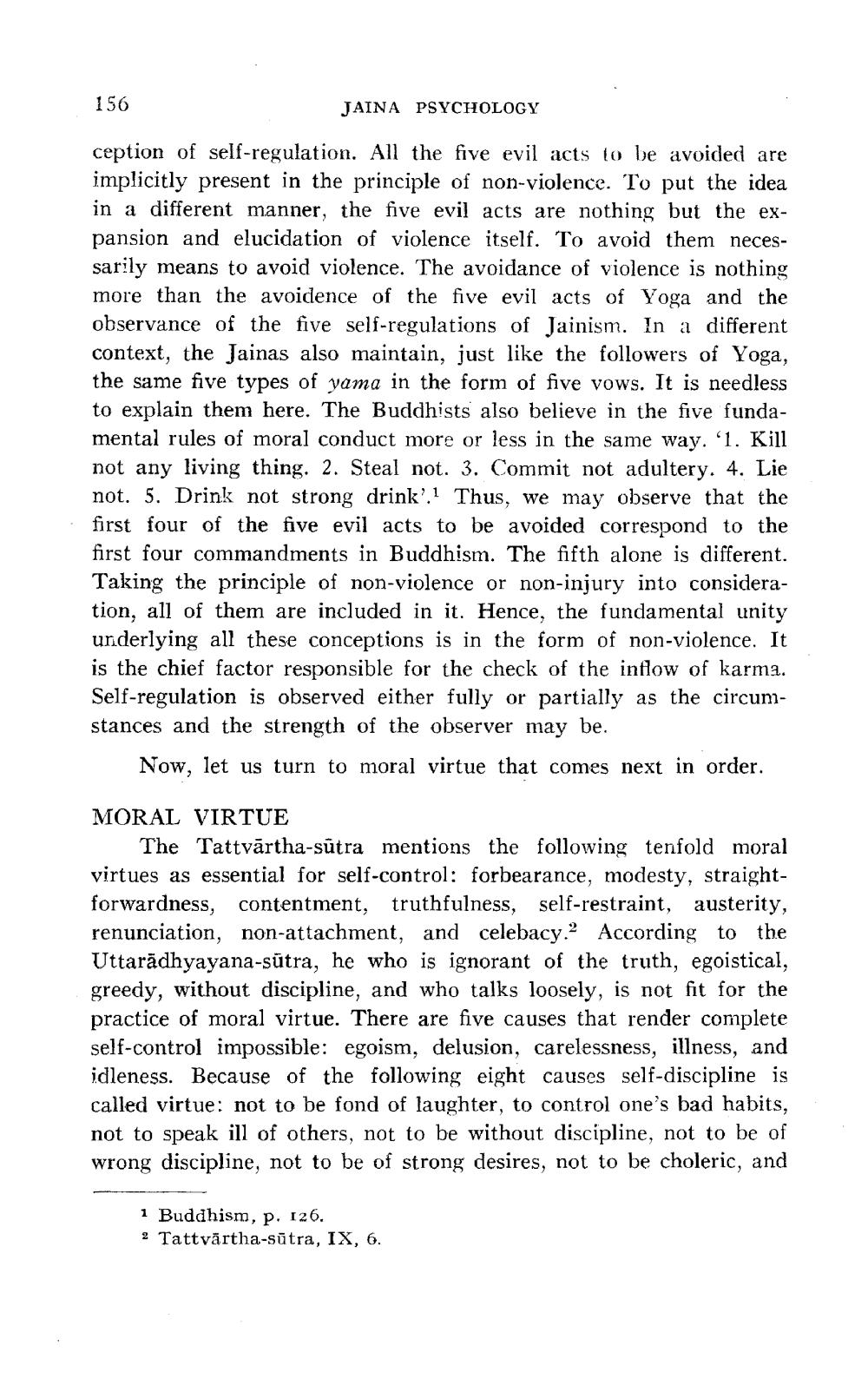________________
156
JAINA PSYCHOLOGY
ception of self-regulation. All the five evil acts to be avoided are implicitly present in the principle of non-violence. To put the idea in a different manner, the five evil acts are nothing but the expansion and elucidation of violence itself. To avoid them necessarily means to avoid violence. The avoidance of violence is nothing more than the avoidence of the five evil acts of Yoga and the observance of the five self-regulations of Jainism. In a different context, the Jainas also maintain, just like the followers of Yoga, the same five types of yama in the form of five vows. It is needless to explain them here. The Buddhists also believe in the five fundamental rules of moral conduct more or less in the same way. '1. Kill not any living thing. 2. Steal not. 3. Commit not adultery. 4. Lie not. 5. Drink not strong drink?.1 Thus, we may observe that the first four of the five evil acts to be avoided correspond to the first four commandments in Buddhism. The fifth alone is different. Taking the principle of non-violence or non-injury into consideration, all of them are included in it. Hence, the fundamental unity underlying all these conceptions is in the form of non-violence. It is the chief factor responsible for the check of the inflow of karma. Self-regulation is observed either fully or partially as the circunstances and the strength of the observer may be.
Now, let us turn to moral virtue that comes next in order.
MORAL VIRTUE
The Tattvārtha-sūtra mentions the following tenfold moral virtues as essential for self-control: forbearance, modesty, straightforwardness, contentment, truthfulness, self-restraint, austerity, renunciation, non-attachment, and celebacy. According to the Uttarādhyayana-sūtra, he who is ignorant of the truth, egoistical, greedy, without discipline, and who talks loosely, is not fit for the practice of moral virtue. There are five causes that render complete self-control impossible: egoism, delusion, carelessness, illness, and idleness. Because of the following eight causes self-discipline is called virtue: not to be fond of laughter, to control one's bad habits, not to speak ill of others, not to be without discipline, not to be of wrong discipline, not to be of strong desires, not to be choleric, and
1 Buddhism, p. 126. 2 Tattvārtha-sūtra, IX, 6.




